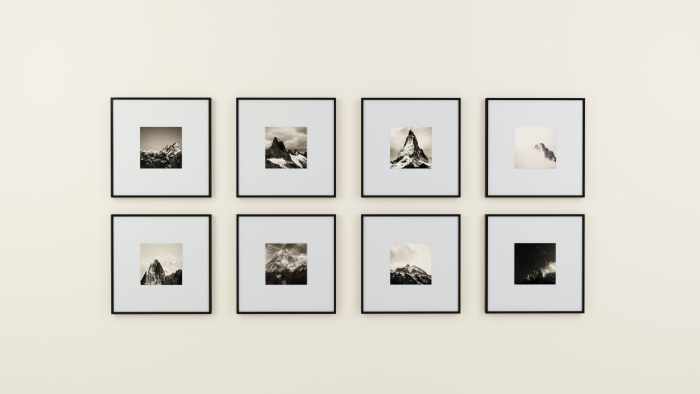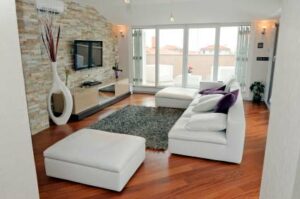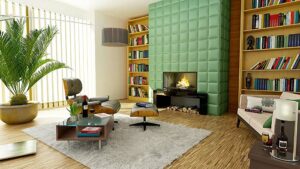Interior design is all about creating a beautiful and functional space that reflects the personality and lifestyle of the people who live there. One powerful design concept in interior design is the use of wall art. Today we’re looking as some ways that top interior designers use wall art to create amazing spaces.

Top interior designers use wall art to transform spaces, adding depth, personality, and visual interest. They strategically select pieces that complement the room’s color palette, style, and scale, ensuring harmony and balance. Wall art can serve as a focal point, drawing the eye and anchoring the room’s design. Designers often use a mix of textures and mediums, such as paintings, prints, and sculptures, to create dynamic, layered environments that reflect the homeowner’s taste and enhance the overall aesthetic.
Whether you want to focus on portraits, landscapes, or even a combination of themed art pieces, wall art is an essential element in every interior designer’s arsenal. In this piece, we’ll look at the best ways that interior designers use wall art.
5 Ways Top Interior Designers Use Wall Art
When it comes to interior design, wall art can make a powerful statement. It can be used to add depth and dimension to a space, as well as interest and excitement. Here are five ways interior designers purchase glass framed wall art and use it to build a cohesive and visually appealing space.
1. Focal Point
A focal point is an area in a room that draws the eye to it. It’s usually placed at the center of attention, so it should be the most interesting part of the room and draw attention to itself. In small rooms, this can be difficult. Simply because there isn’t much space for anything to stand out. However, wall art is perfect for creating a focal point because it will immediately attract attention.
2. Add Movement to a Room
If you want your room to feel more spacious and airy, try adding some movement with wall art. You could hang a large painting that has flowing brushstrokes or even paint stripes on the walls themselves. Anything that will make your space feel like it’s moving or flowing.
3. Create Contrast
You can do this by pairing contrasting colors or patterns, or by using different textures in the same way. This will help add interest and visual excitement to your home or office, as well as make it more visually appealing.
4. Add Color to a Space
This can be done by using bright colors or shades from one color family, such as blues and greens. You can also add color with patterns, such as stripes or polka dots, which will also help bring attention to certain areas in your room or office.
5. Add Depth, Dimension, and Interest to a Space
Wall art adds depth, dimension, and interest to any space. It can make a small space feel bigger, or a big space feel smaller. Wall art can make a room feel more elegant, sophisticated, or casual. It is an excellent way to add color to a room without adding too much color. The right type of wall art can make your living room look like it was decorated by an interior designer instead of you!
Conclusion
Wall art can be used to create a feeling or mood, as well as to complement a room’s existing decor. Remember that when you are working on a design project, it is important to consider all of the elements of a room, including colors, furnishings, and wall art. The right combination of these elements can help you create an environment that will be both beautiful and functional.



